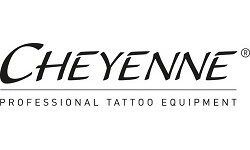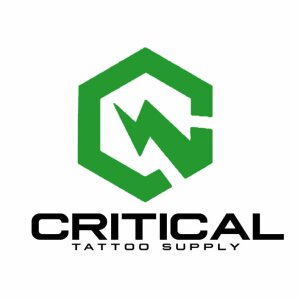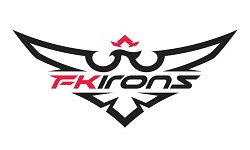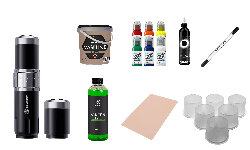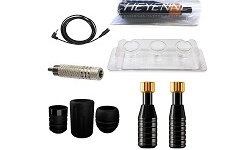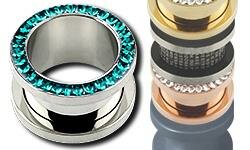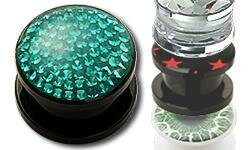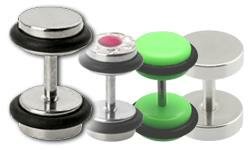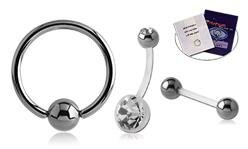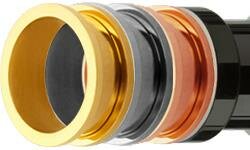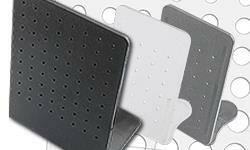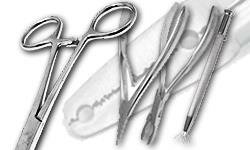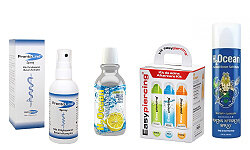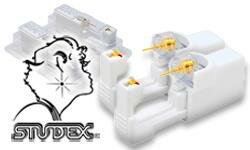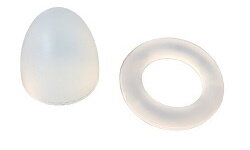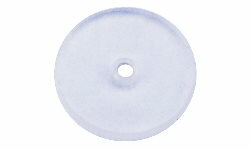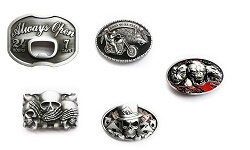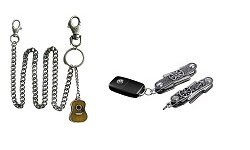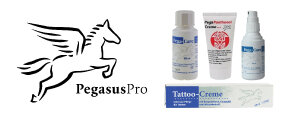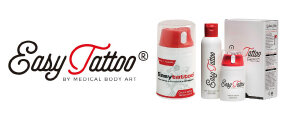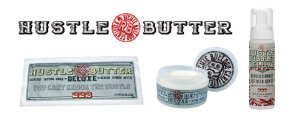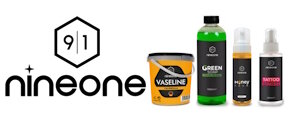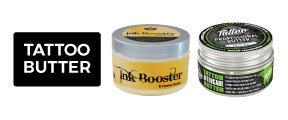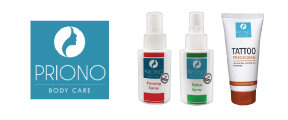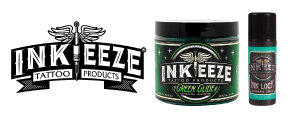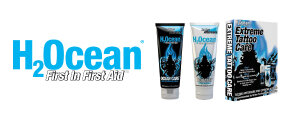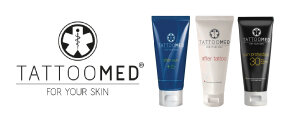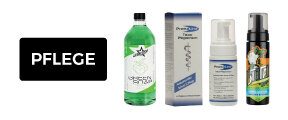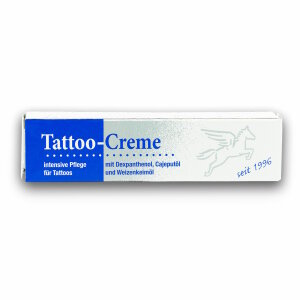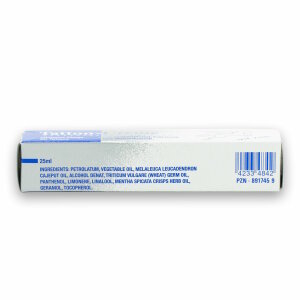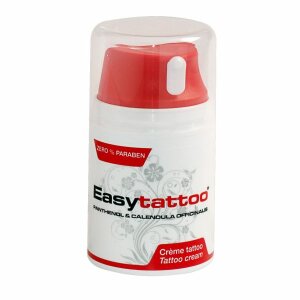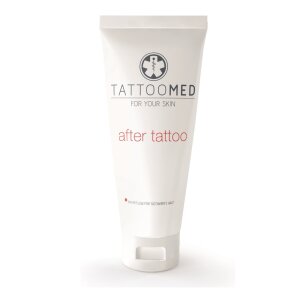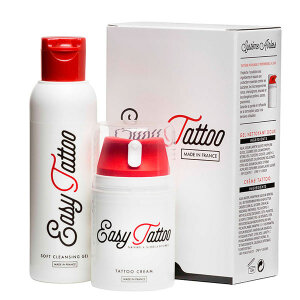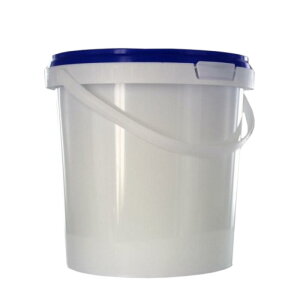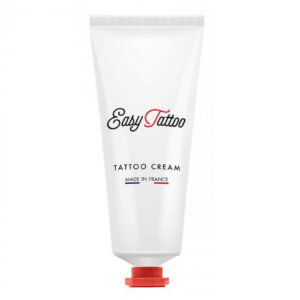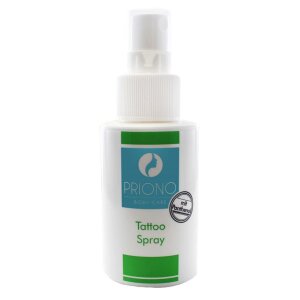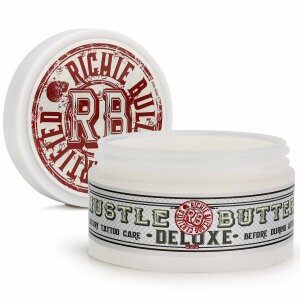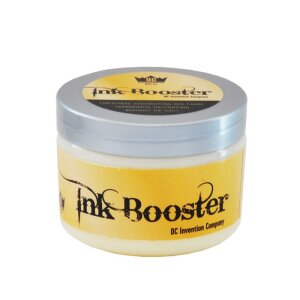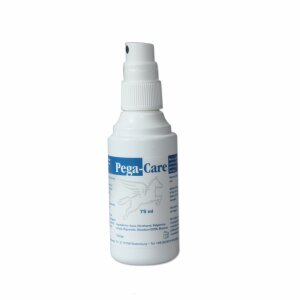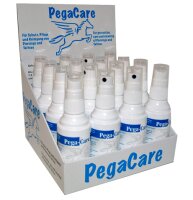How to Choose the Best Aftercare Products for Tattoos
A tattoo is a costly investment that will last a lifetime. After getting your tattoo, use a non-irritating, protective tattoo care cream. Applying an ointment after a tattoo helps the skin heal and lays down a protective layer that aids healing. The ointment acts like a barrier that speeds up healing. A drying scab can cause a sensation of tightness in the skin. A drying scab heals quickly, but nowhere near as well as it could with a healing ointment. The right product is key to better healing.
What Kind of Ointment Can Be Used on Tattoos?
There isn't one ointment that's best for everyone. However, it's important to advise your clients to read the list of ingredients and follow these tips. Avoid fragrances and other additives that could be irritating or peeling. In this case, it's best to keep things simple. Avoid irritating retinoids and alpha-hydroxy acids, as well as salicylic acid and lanolin. Neosporin and other antibiotic ointments should also not be used, as they can cause allergic reactions or contact dermatitis.
Soaps
A mild, fragrance-free soap is recommended. Baby products are a good choice as they are often gentle and fragrance-free.
Petroleum-Based Ointments
In the first few days, thicker, moisturizing products are best suited. These products should be applied in a thin layer so that your skin can breathe and heal. Bepanthen is one of the most popular ointments, and Vaseline works just as well.
Moisturizers
As your tattoo begins to heal and the scab falls off, you can apply a moisturizer. Baby care creams and lotions can support the healing of tattoos, but make sure to use fragrance-free products!
Tattoo Care ABC: The Basics of After Care
As a tattoo artist, you start the aftercare routine of your clients as soon as your work is done. After all, it's your masterpiece, and you want to preserve its beauty. In the first step of tattoo care, apply a thin layer of petroleum-based ointment from the tattoo supply shop to the tattoo and then cover it with plastic wrap or a bandage.
Even if the client wants to admire their new tattoo (or touch it), keep them from doing so. A tattoo is essentially an open wound. By covering it (and keeping hands away), you prevent bacteria from entering the skin. Depending on where the tattoo is on the body, covering also prevents clothing from rubbing against it, causing discomfort and irritation. The biggest mistake people with new tattoos make? Not using sunscreen and exposing the tattoo to sunlight.
Advise your clients on these do's and don'ts for basic tattoo care:
Do's
- Keep your tattoo covered for a few hours to absorb any fluid, blood, or excess ink that might leak out. (This is completely normal.)
- Remember that a tattoo is a wound. When you're ready to remove the bandage, treat your tattoo like any other skin injury. Wash your hands before you touch your tattoo, and gently wash the affected area with water and soap.
- Always use lukewarm water and a mild, fragrance-free soap from the tattoo supply shop for tattoo care.
- Moisturize the area, but let it breathe. Then cover your entire tattoo with a thin layer of ointment or another approved product from the tattoo supply shop. If your tattoo is in an area not covered by clothing, leave it uncovered so your skin can breathe and healing is facilitated.
- Cover up when you are in the sun. Opt for loose-fitting, sun-protective clothing until your tattoo has healed. Then apply plenty of SPF - tattooed skin is not immune to UV rays or premature aging.
- Contact your tattoo artist or doctor if you notice unusual swelling, irritation, or other signs of infection or allergic reaction.
Precautions
- Do not rub your skin dry - pat it gently to avoid irritation.
- Do not apply sunscreen until your tattoo is fully healed, as the chemicals or minerals could irritate the injured skin.
- Do not pick, scratch, or rub your tattoo before it has healed. You could cause scarring.
- Do not swim, take hot baths, or bathe until your tattoo is fully healed. Opt for a shower instead. (It's okay to bathe or swim if you can keep your new tattoo out of the water.)
- You should also avoid steam rooms and saunas until your tattoo has healed.
Tattoo Care: How to Care for Your Tattoo: A Schedule
Your healing process is as unique as your tattoo itself. Larger tattoos will likely take longer to heal, as will those that rub against clothing. Inform your clients that all the following tattoo care tips are normal parts of the healing process:
Day 1
You may see blood and clear plasma leaking from your tattoo, as well as some ink. Warmth or swelling may also occur.
Keep your new tattoo clean (wash it after a few hours with fragrance-free soap from the tattoo supply).
Days 2-3
As your skin heals, you will notice a thin scab forming. Do not pick at it. Your tattoo may now look duller - don't worry.
Wash your tattoo twice a day and then apply a moisturizer from the tattoo supply shop that is free from alcohol and fragrances.
Some of the ink may wash off your skin.
Days 4-6
Redness will gradually subside, and more scabbing will form. Keep your hands off!
Wash your tattoo twice a day and then apply an alcohol- and fragrance-free tattoo aftercare cream from the tattoo supply.
Weeks 1-2
The scab will start to fall off. Do not encourage this process!
Itching is normal, so keep your tattoo care lotion from the tattoo supply ready and apply it multiple times a day.
Redness and swelling should have subsided. If not, speak with your tattoo artist or a dermatologist.
Weeks 2-4
Your tattoo might still look a bit dull or dry, so tattoo aftercare products from the tattoo supply shop remain your best friend.
Keep up the hydration with tattoo care until your skin is fully healed and supple again.
Long-term Care
It can take months for a tattoo to fully heal, especially if it is large or detailed.
After about 3 months, your tattoo should look as you envisioned.
Keep your tattoo covered with sunscreen to keep it looking as vibrant and fresh as possible!
How to Choose the Best Tattoo Aftercare Products
A tattoo is a major investment and a personal statement that lasts forever - so your clients should also care for it accordingly. It is very important to use a protective ointment for tattoo care that contains no irritating chemicals. The purpose of using an ointment after a tattoo is to allow the scab to heal and provide a layer of softener so that healing can occur.
The ointment provides a protective barrier that slows the healing just enough. The uncomfortable feeling of tightness that occurs when a scab dries out can be a sign that the skin is contracting during healing - and that is not what you want when you have a beautiful pattern on your skin. If a scab dries out, it heals quickly, but not nearly as well as if you use a healing ointment and keep the area covered. Using the right product can make a difference, and it allows for better healing - faster is not better in this case.
What Type of Ointment Should You Apply to Tattoos?
There isn't one that is best. But advise your clients to read the list of ingredients and follow these tips:
- Choose a product from the tattoo supply without perfume or additives that could be irritating or peeling. Keeping it simple is better in this case.
- Avoid retinoids, salicylic acid, alpha-hydroxy acids, and lanolin, which can be irritating.
- Do not use Neosporin or other antibiotic ointments that can cause an allergic reaction or contact dermatitis.
Use a fragrance-free, gentle soap. Baby products are usually a good choice as they are typically fragrance-free and gentle.
Petroleum-Based OintmentsThese thicker, highly moisturizing products are best suited for the first few days. Use a thin layer of these products so your skin can still breathe and heal.
A&D ointment (also used for diaper rash) is a cheap and popular choice for aftercare of new tattoos. This ointment is also called Bepanthen.
Good old Vaseline works well too.
Moisturizers
As your tattoo begins to heal and the scab falls off, reach for a gentle moisturizer if needed. Baby care lotions and creams work well for tattoos, but always choose fragrance-free varieties!

 Black
Black White
White Grey
Grey Brown
Brown Red
Red Yellow
Yellow Pink
Pink Skin Tones
Skin Tones Orange
Orange Violet
Violet Green
Green Blue
Blue